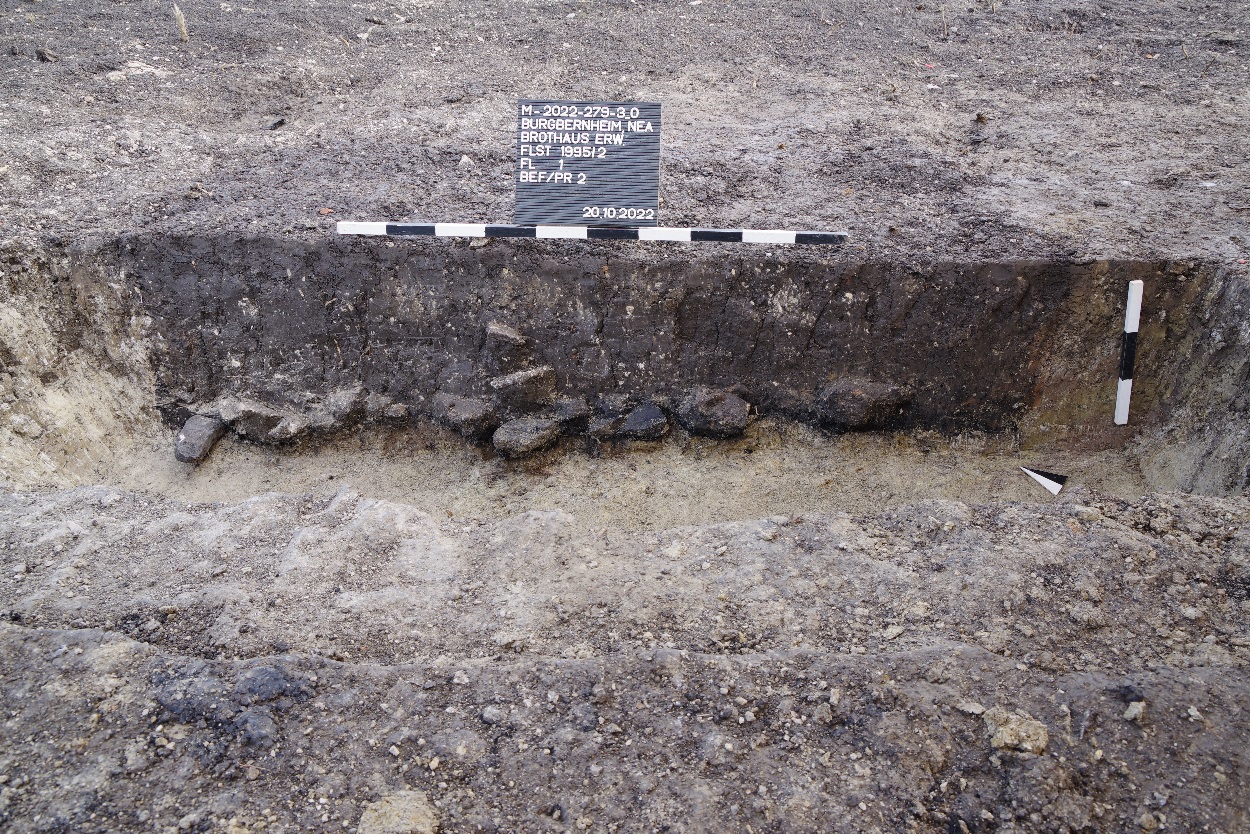Excavations in Burgbernheim, located within the Neustadt an der Aisch-Bad Windsheim district of Germany, have uncovered evidence of early baking practices dating back to the late Bronze Age and early Iron Age.
Archaeologists from the Bavarian State Office for Monument Preservation (BLfD) uncovered an unusual concentration of pits filled with heat-altered stones.
An archaeobotanical study determined that these pits were associated with food preparation, while carbon dating of charcoal samples confirmed their use during the late Bronze and early Iron Ages.
According to the archaeologists, the charcoal samples contained 83% grain residue, with millet, einkorn, spelt, and oats being prominent, alongside the rare discovery of physalis seed remains.
“Cooking pits are already known from previous investigations both in the region and beyond, but the now documented unusual accumulation of these structures is extremely important for the reconstruction of nutrition and agricultural use during the metal ages in Bavaria,” says Dr. Stefanie Berg, head of the Department of Archaeological Monument Preservation, BLfD.
Excavations also found a grinding stone measuring 26 x 34 cm’s. The stone has a smooth, concave top, indicating that it was mainly used for grinding grain into flour.
Archaeologists highlighted the significance of the findings, as they reveal that the area was a major centre for food production around 800 BC.
Header Image Credit : BLfD
Sources : Bayerisches Landesamt für Denkmalpflege





